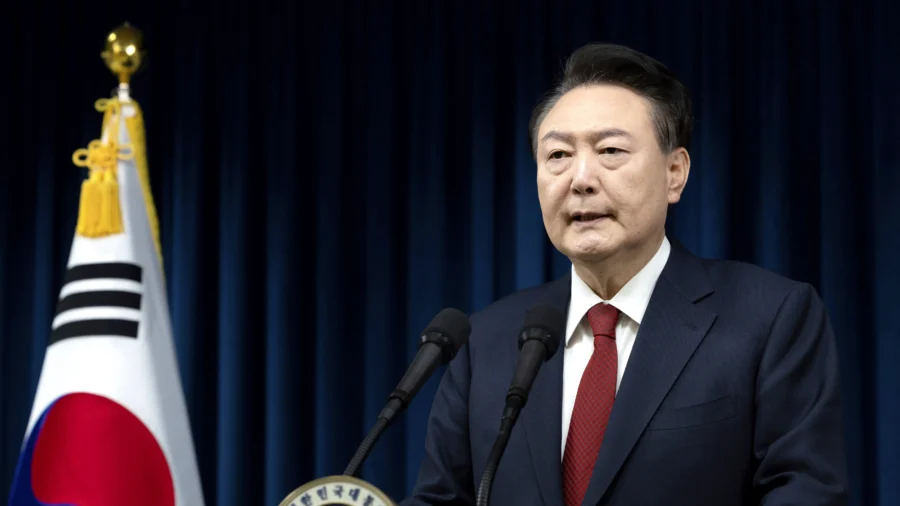South Korean President Yoon Suk Yeol said on Dec. 11 that he will “fight to the end,” in the face of attempts to impeach him following his short-lived martial law declaration earlier this month.
In a televised speech lasting just under 30 minutes, Yoon said that he declared martial law on Dec. 3 as a warning to the opposition Democratic Party, which he accused of sympathizing with North Korea and using its legislative power to impeach top officials and undermine the government’s budget bill for next year.
The martial law declaration and his decision to send troops to the country’s National Assembly does not amount to an insurrection, he said.
“I will fight to the end to prevent the forces and criminal groups that have been responsible for paralyzing the country’s government and disrupting the nation’s constitutional order from threatening the future of the Republic of Korea,” Yoon said. “The opposition is now doing a sword dance of chaos, claiming that the declaration of martial law constitutes to an act of rebellion. But was it really?”
He said the decision to send troops to the country’s parliament was designed to protect order, not dissolve or paralyze it.
“The National Assembly, dominated by the large opposition party, has become a monster that destroys the constitutional order of liberal democracy,” Yoon said. “If this is not a state of government paralysis and a national crisis, what is it?”
Kim Min-seok, a senior Democratic Party member, said Yoon’s speech was “an expression of extreme delusion” and a “declaration of war against the people.”
He said that his party is focused on getting a second motion to impeach Yoon passed on Dec. 14.
The first vote failed after most members of Yoon’s People Power Party (PPP) boycotted the vote, denying a two-thirds majority needed in the 300-member parliament to suspend his presidential powers.
At least seven members of the party are expected to support Saturday’s impeachment motion.
Yoon sparked widespread protests across the country when he issued his martial law declaration, only to reverse it six hours later after the National Assembly unanimously opposed it.
As well as facing possible impeachment, prosecutors have opened a treason investigation into Yoon, his interior minister, and the defense minister—who has since been replaced—over their alleged roles in the attempt to impose martial law, according to local media reports.
During his Dec. 11 speech, Yoon also addressed the arrest of three Chinese students who were allegedly caught using a drone to illegally film a U.S. aircraft carrier anchored in Busan in June.
He also mentioned a separate incident last month in which a Chinese national was arrested for flying a drone over the National Intelligence Service headquarters in southern Seoul.
“Under current law, there is no way to punish espionage by foreigners, and we have tried to revise the criminal act to correct this but have been blocked by the opposition,” Yoon said.
Reuters and The Associated Press contributed to this report.
From The Epoch Times

